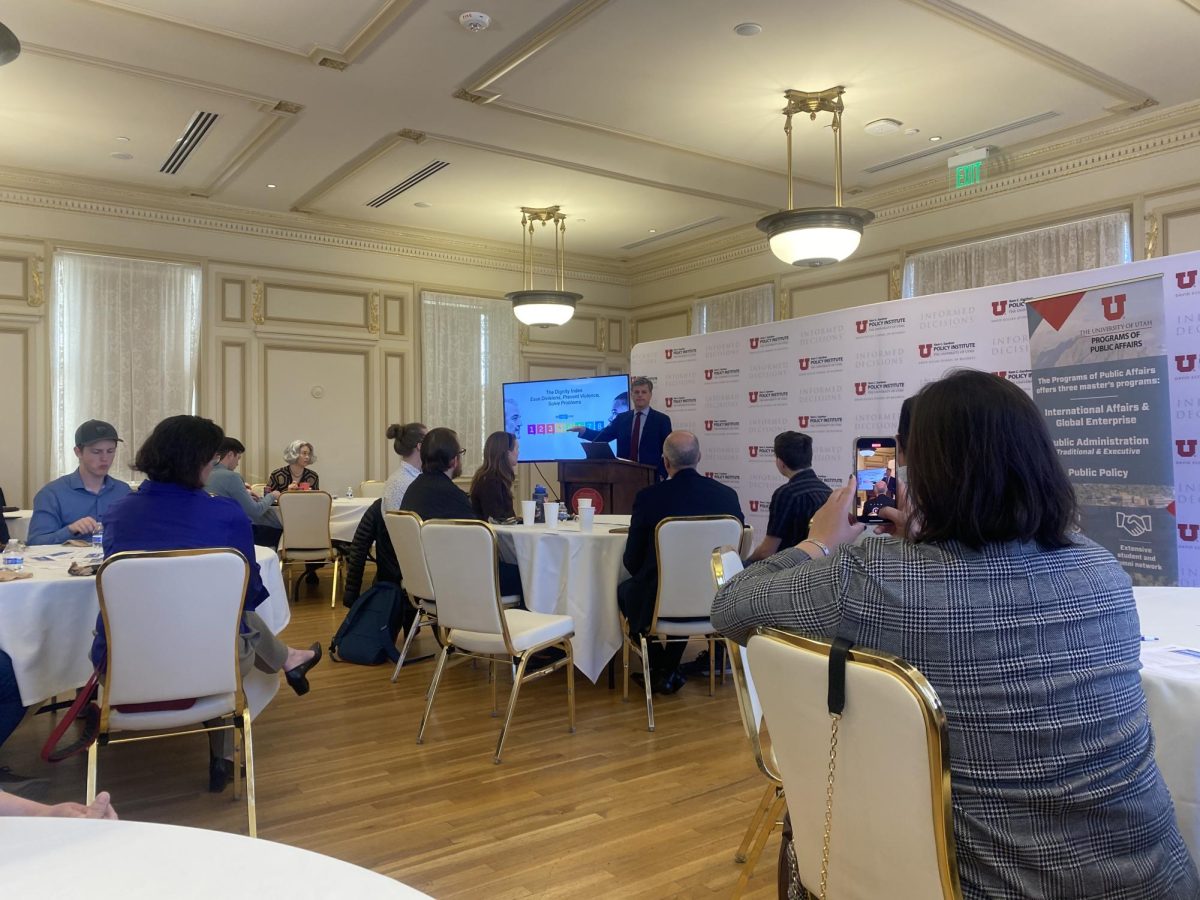With environmental crime on the rise, offenders still get off easier than other criminals.
This trend, which was discussed Thursday at a symposium held by the S.J. Quinney College of Law, is unsettling to environmentalists and prosecutors alike.
Michael O’Hear, the dean for research at Marquette University in Milwaukee, displayed a graph showing that roughly 50 percent of environmental crimes are given lighter sentences than guidelines suggest, compared with 30 percent of all other crimes.
“There are only about 100 cases like this per year, compared with about 85,000 total crimes, so the impact made on the overall statistics is trivial, but nonetheless important,” O’Hear said.
Environmental crime has been a problem for decades, but only in the past 20 years have policies and legislation been enacted to prevent and prosecute criminal offenses.
The Environmental Protection Agency, formed in 1970, along with other governmental agencies, bore down heavily in the 1980s on businesses that refused to cooperate with the new legislation. The most famous prosecution of an environmental crime was the Exxon Valdez oil spill in 1989, which led to numerous guilty pleas and the U.S. government fining the company $1.2 billion, according to the U.S. Department of Justice.
“When I started at the Department of Justice in 1970, I didn’t feel like we had much power,” said Jim Moore, vice president for the Huntsman Corporation, a Utah-based chemical company founded by Jon M. Huntsman Sr. “There wasn’t much enforcement, but all that has changed now.”
Even with increased prosecution of such crimes, many admit there is still much that needs to be done.
“It’s not a matter of scaring them into obedience, it’s about showing them that the system works and getting them to obey the law simply because it’s the right thing to do,” O’Hear said.
The increased visibility of the subject and its history concerning the topic prompted the college of law to hold the symposium.”It’s a different type of prosecution, it’s not like other crimes,” said Robert Adler, the dean for academic affairs at the college of law, who organized the event.
The U’s Wallace Stegner Center for Land, Resources and the Environment hosted the speakers, which organizers said helps add to the U’s reputation as a leader in the field.
“The U is already known for environmental law,” Adler said. “We’re nationally known for our faculty and we have been for many years.”
The emphasis placed on environmental crime is climbing each year, along with environmental crime, and the law will continue to adapt to the circumstances. O’Hear stressed the importance of positive action to correct the course.
“You have to persuade the people that the law is concerned with justice,” O’Hear said. “Then things will begin to change.”















